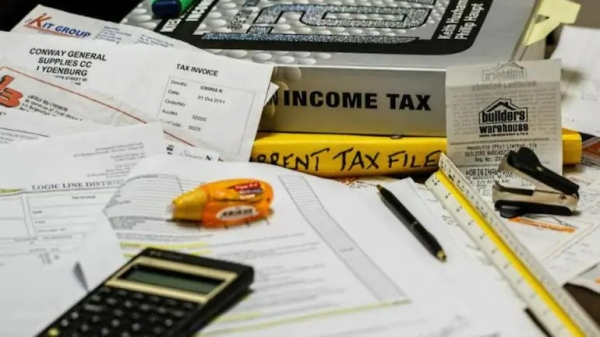What to do if you have missed income tax return filing deadline of July 31
Till FY 2019-20 (AY 2020-21), an individual may file a late ITR through March 31 of the assessment year. However, beginning with fiscal year 2020-2021 (AY 2021-
- by B2B Desk 2022-08-01 06:37:00
The last date to file an income tax return for tax year 2021-2022 (AY 2022-23) was July 31, 2022. However, an individual can file an ITR even if they missed the deadline to file an ITR. An income tax return filed after the due date is called a delayed ITR. One will have to pay a late filing fee when filing a late ITR. Here's what you need to know about filing a belated tax return.
What is a belated ITR?
An income tax return filed after the due date under section 139(4) of the Income Tax Act 1961 is called a belated ITR.
What is the last date to file a late ITR?
According to the amendment announced in the Budget 2021, the deadline for submitting an expired ITR has been reduced by three months. Now, a late return can be filed any time three months before the end of the applicable assessment year or before the assessment is completed, whichever comes first.
Till FY 2019-20 (AY 2020-21), an individual may file a late ITR through March 31 of the assessment year. However, beginning with fiscal year 2020-2021 (AY 2021-22), late ITRs can be submitted until December 31 of the assessment year. Therefore, for the 2021-22 tax year, the individual taxpayer now has 5 months (December 31, 2022) after the due date to file an ITR (July 31, 2022) instead of 8 months (31 March 2023) before.

What is the amount of the penalty for a late ITR deposit?
Till FY 2019-20 (AY 2020-21) there was a two-tier structure. If the late ITR is filed after the expiration of the deadline (July 31) but on or before December 31, the late filing fee of Rs 5,000 was applicable. If the ITR is filed between January and March, a late filing fee of Rs 10,000 was applicable. A consequent amendment was made to Section 234F due to a reduction in the time limit for filing a late ITR.
Therefore, under the current rules, a person will be required to pay a late filing fee of Rs 5,000 if the ITR is filed late. For small taxpayers whose total income does not exceed Rs 5 lakh, the late registration fee will not exceed Rs 1,000.
What are the benefits lost while filing belated ITR?
Apart from paying the late filing fee of Rs 5,000, an individual will also have to give up other benefits. Chartered Accountant Naveen Wadhwa, DGM, Taxmann.com says: “If a person misses the ITR filing due date and beyond late ITR filings, they will not be eligible to carry forward losses (except for head losses - income Losses cannot be transferred to the following income items, if the ITR is submitted after the deadline:
1) Income from businesses and professions including speculative businesses,
2) Income from capital gains
3) Income from other sources.
In addition, if there are unpaid taxes at the time of filing the ITR, penal interest will also be levied. Wadhwa says, “Penal interest will be levied under Section 234A if self-assessment taxes are due.
Can delayed ITRs be reviewed at a later time if an error is detected?
After filing belated ITR, if a mistake has been discovered, an individual taxpayer can review the late ITR. However, he notes that the latest submission of late ITRs and revised ITRs are the same, ie December 31 of the relevant assessment year.
Therefore, if you file your belated ITR for FY 2021-22 (AY 2022-23) on December 31, 2022, you may not have the opportunity to file a revised return because the filing deadline also ends on December 31, 2022. December 2022.
What to keep in mind while filing belated ITR?
If you are filing belated ITR, you must complete and submit it using the appropriate ITR form notified for the assessment year. The relevant fiscal year for the fiscal year is the immediately following fiscal year.
Therefore, when submitting the late ITL for fiscal year 2021-22, the relevant assessment year is 2022-23. The individual taxpayer must use the ITR forms notified for AY 2022-23 to file a late ITR.
Also Read: India blocks Krafton's Battlegrounds Mobile India on concerns over data sharing in China
POPULAR POSTS
Loan EMIs to Drop as RBI Slashes Repo Rate - Full MPC December 2025 Highlights
by Shan, 2025-12-05 11:49:44
Zoho Mail vs Gmail (2025): Which Email Platform Is Best for Businesses, Startups, and Students?
by Shan, 2025-10-09 12:17:26
PM Modi Launches GST Bachat Utsav: Lower Taxes, More Savings for Every Indian Household
by Shan, 2025-09-24 12:20:59
$100K H-1B Visa Fee Explained: Trump’s New Rule, Clarifications & Impact on Indian Tech Workers
by Shan, 2025-09-22 10:11:03
India-US Trade Deal Soon? Chief US Negotiator Arrives in Delhi as Talks Set to Begin Tomorrow
by Shan, 2025-09-15 11:54:28
Modi Meets Xi: Trump’s Tariffs, Strategic Autonomy, and the Future of Asia’s Power Balance
by Shan, 2025-09-03 06:40:06
Google Claims Gemini AI Uses Just ‘Five Drops of Water’ Per Prompt, Sparks Debate
by Shan, 2025-08-22 12:34:27
RECENTLY PUBLISHED

Pine Labs IPO 2025: Listing Date, Grey Market Premium, and Expert Outlook
- by Shan, 2025-11-05 09:57:07

The Agentic Revolution: Why Salesforce Is Betting Its Future on AI Agents
- by Shan, 2025-11-05 10:29:23

Top 10 Insurance Companies in India 2026: Life, Health, and General Insurance Leaders Explained
- by Shan, 2025-10-30 10:06:42

OpenAI Offers ChatGPT Go Free in India: What’s Behind This Big AI Giveaway?
- by Shan, 2025-10-28 12:19:11

Best Silver Investment Platforms for 2025: From CFDs to Digital Vaults Explained
- by Shan, 2025-10-23 12:22:46





 Subscribe now
Subscribe now 